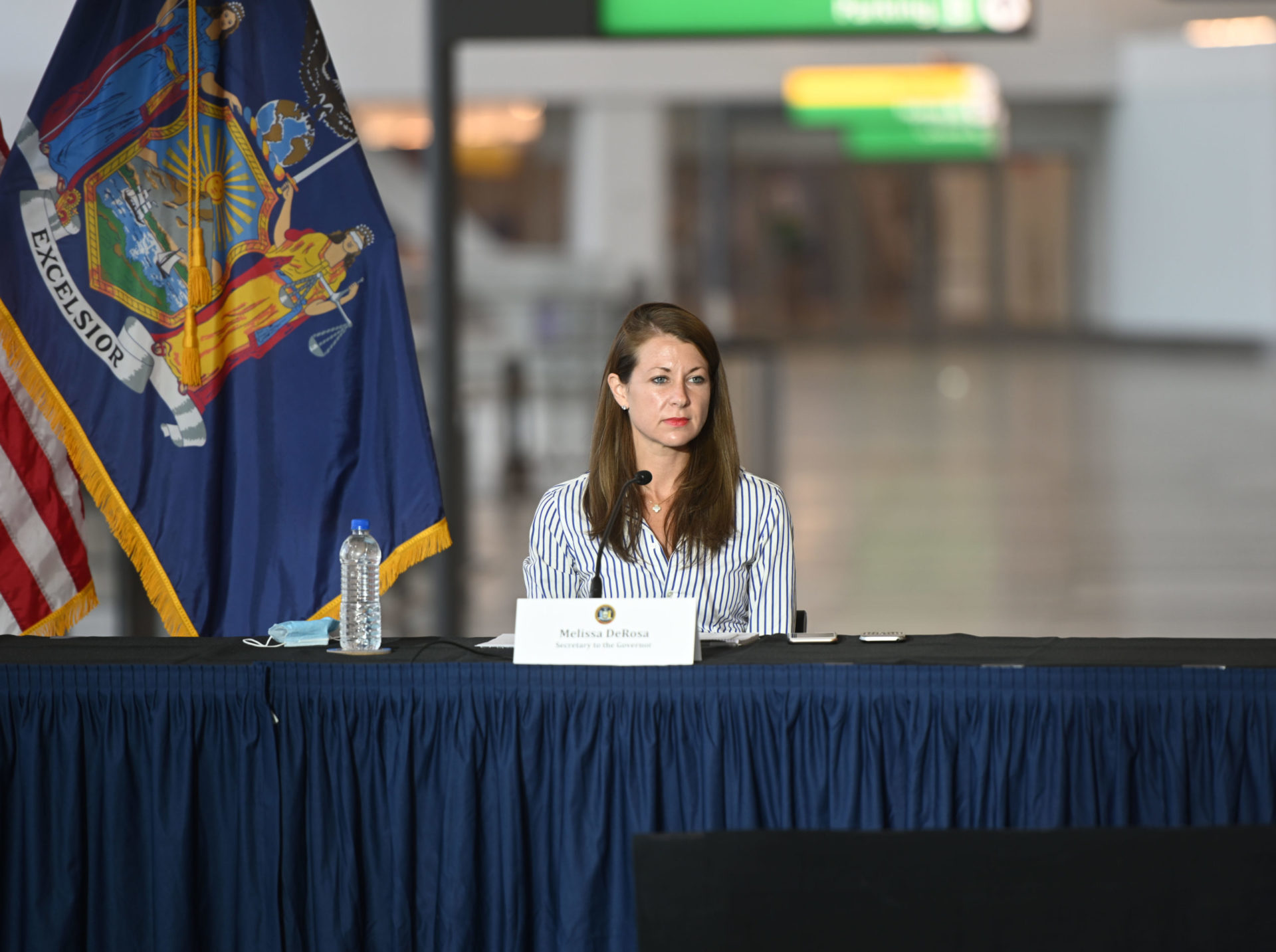Domestic Violence Task Force Recommends State Transforms Its Approach

How New York provides services to those suffering domestic violence has to be reimagined to offer innovative solutions to safely reach victims and get them life-saving services, according to a report issued this week from Melissa DeRosa, the Secretary to the Governor.
The report, submitted to Governor Andrew Cuomo on Thursday, outlines the COVID-19 Domestic Violence Task Force’s initial recommendations, meant to address the spike in cases of domestic abuse during the pandemic. The Task Force, made up of 27 advocates, service providers and leaders from across the country, met virtually since its creation on May 20. The governor accepted the group’s 10 detailed recommendations in full.
“As New York builds back better and charts a path forward in the wake of the pandemic, the state has the opportunity to adapt to the new normal and to transform its approach to domestic violence,” the report said. “This moment demands flexibility, innovative thinking, and a willingness to move beyond the idea that shelter is the only option for victims and survivors on the deepest margins of society who are seeking safety. ”
“Domestic violence has been a pervasive problem in our society, and the COVID-19 pandemic has only exacerbated the situation and exposed the limitations of our traditional systems and methods,” said DeRosa in a statement. She is also the Chair of the New York State Council on Women and Girls.
According to the governor’s office, the New York State Domestic & Sexual Violence Hotline received a 33 percent increase in calls for April 2020 in comparison to April 2019. Shelter occupancy rates rose to 78 percent in April 2020, where it had been 59 percent the year before.
“The COVID-19 pandemic has led to a drastic increase in the number of reported domestic violence cases in the state, leaving many survivors trapped at home with their abusers without access to help or resources,” Cuomo said in a statement. “New York has been working to modernize our systems and the way we deliver services to survivors, and the recommendations made by the task force will help address this alarming spike in domestic violence incidents while building our systems and processes back better than they were before.”
Among the task force’s 10 recommendations were using technologies to reach more survivors. It seeks to have the Office for the Prevention of Domestic Violence permanently incorporate a chat and text component to the state’s hotline.
Screenings during tele-health visits were also recommended. The OPDV and the Department of Health should develop and provide training, technical assistance and appropriate literature to healthcare providers to encourage screening for domestic violence and appropriate responses when domestic violence is suspected or identified during tele-health visits, the report said.
Another recommendation is to have state agencies provide funding for local programs that can be used to support survivors’ safety, housing stability, transportation or other needs. The report also said programs should designate a portion of one staff member’s salary to be used for housing navigation services. A “housing navigator” would “bridge the gap” between domestic violence services and housing providers in order to ensure that a particular victim’s needs are met.
Point to data that some victims of domestic violence are too afraid to file police reports, the Task Force wants to see the governor issue an executive order to remove the requirement that they file one in order to access the Victims of Crime Act funding.
It was also recommended that the Council on Women and Girls establish a committee “to prioritize and coordinate the creation of culturally competent service delivery designed to address the needs of Black, Indigenous and People of Color survivors of gender-based violence,” according to the report.
Financial implications of abuse were also tackled in the report. The task force wants to launch a public awareness campaign to highlight financial abuse, and establish a pilot project with local domestic service providers to identify victims whose credit has been ruined as a result of their abuse and work to repair and rebuild their financial standing.
Other recommendations include a program to promote the need for representation of immigrant victims and launching a new prevention initiative specifically directed at educating men about domestic violence.
Cuomo has directed the Office for the Prevention of Domestic Violence, along with other the Office of Children and Family Services, the Office of Temporary and Disability Assistance, the Office of Victim Services, the Division of Criminal Justice Services and the Department of Health, to take the recommendations and begin the process of improving domestic violence services throughout the state.
Many of the recommendations could be quickly implemented, he said.
The task force’s full report is available here.




